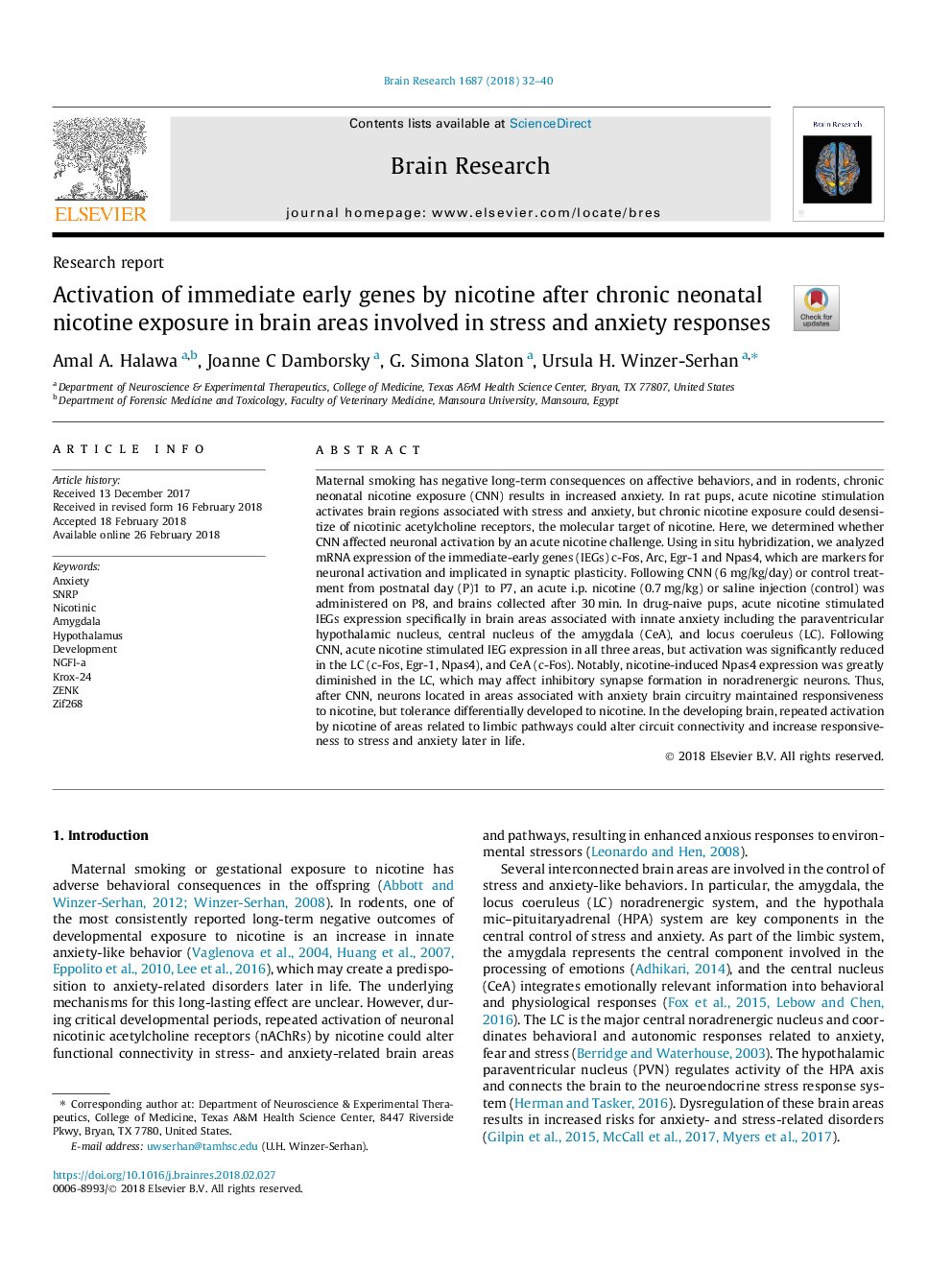Maternal smoking has negative long-term consequences on affective behaviors, and in rodents, chronic neonatal nicotine exposure (CNN) results in increased anxiety. In rat pups, acute nicotine stimulation activates brain regions associated with stress and anxiety, but chronic nicotine exposure could desensitize of nicotinic acetylcholine receptors, the molecular target of nicotine. Here, we determined whether CNN affected neuronal activation by an acute nicotine challenge. Using in situ hybridization, we analyzed mRNA expression of the immediate-early genes (IEGs) c-Fos, Arc, Egr-1 and Npas4, which are markers for neuronal activation and implicated in synaptic plasticity. Following CNN (6 mg/kg/day) or control treatment from postnatal day (P)1 to P7, an acute i.p. nicotine (0.7â¯mg/kg) or saline injection (control) was administered on P8, and brains collected after 30â¯min. In drug-naive pups, acute nicotine stimulated IEGs expression specifically in brain areas associated with innate anxiety including the paraventricular hypothalamic nucleus, central nucleus of the amygdala (CeA), and locus coeruleus (LC). Following CNN, acute nicotine stimulated IEG expression in all three areas, but activation was significantly reduced in the LC (c-Fos, Egr-1, Npas4), and CeA (c-Fos). Notably, nicotine-induced Npas4 expression was greatly diminished in the LC, which may affect inhibitory synapse formation in noradrenergic neurons. Thus, after CNN, neurons located in areas associated with anxiety brain circuitry maintained responsiveness to nicotine, but tolerance differentially developed to nicotine. In the developing brain, repeated activation by nicotine of areas related to limbic pathways could alter circuit connectivity and increase responsiveness to stress and anxiety later in life.


